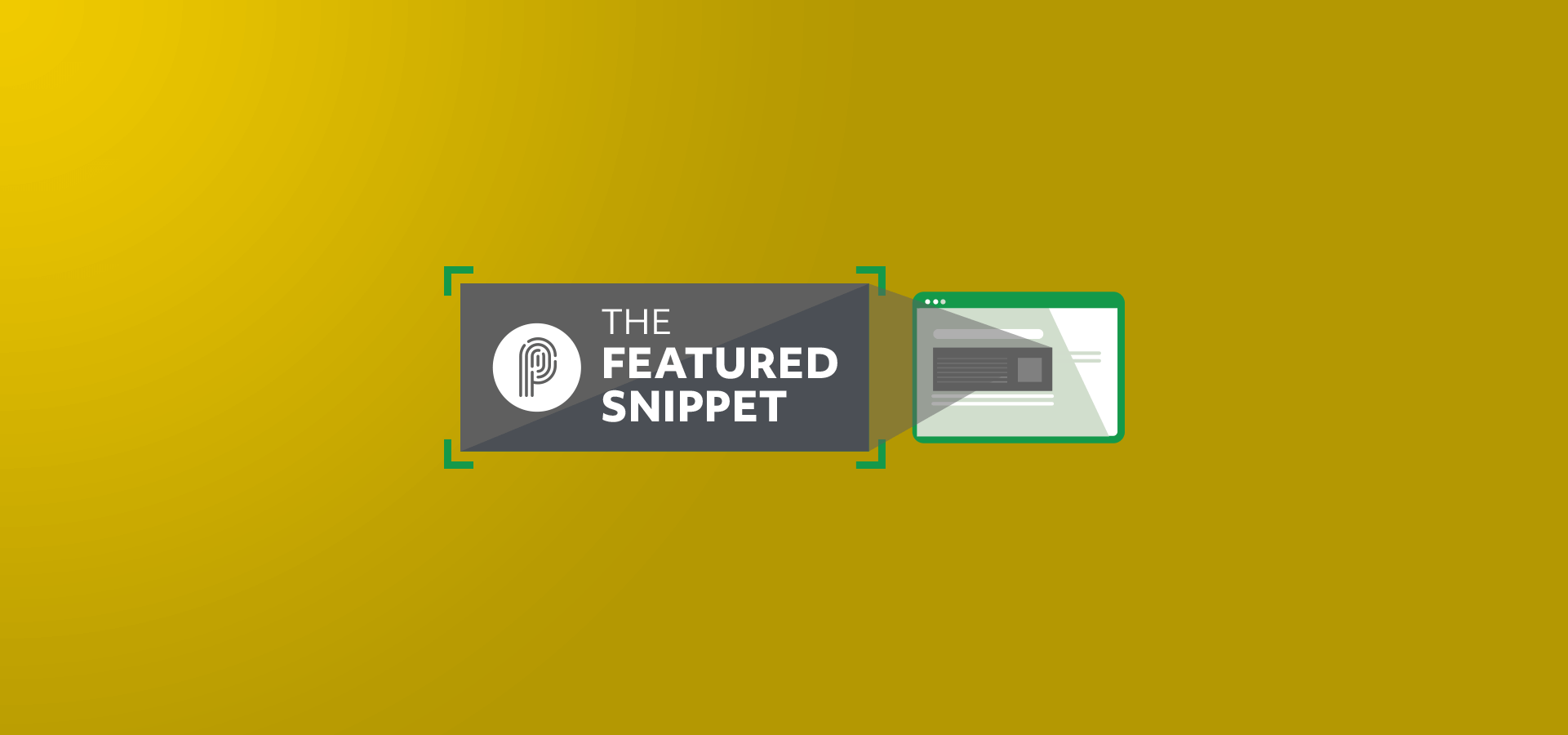

The Featured Snippet is the official SEO newsletter of Performics and is dedicated to keeping you update-to-date with the latest SEO industry news, trends, and events—all in an easy-to-read, summed-up format. See below for the latest version of The Featured Snippet:
In the January 2020 issue of The Featured Snippet:
Google rolled out its first core algorithm update for 2020 with the January 2020 Core Update. Here is the official announcement from Google:
As a reminder, core updates are bigger and more significant than other daily changes Google implements. These core updates tend to produce wider gains and losses for sites and are designed to ensure that Google is providing the best content for its users.
One noteworthy bit of news that came out of the January 2020 Core Update is that all core updates are global updates. Here is the official word from Google’s Danny Sullivan:
If you were affected by the January 2020 Core Update, Google recommends to follow these guidelines on core updates, or you can check out Performics’ blog post on the topic with advice if you were affected by the January 2020 Core Update.
Resources:
Google made a big change to SERPs with the announcement that URLs that are shown in the featured snippet will no longer show on the first page of regular SERP listings. Here is the official announcement from Google:
Some important changes to understand about the featured snippet deduplication update:
For more information on this update, Barry Schwartz of Search Engine Roundtable laid out a list of everything you need to know about the featured snippet deduplication change.
Resources:
Google rolled out a new desktop layout that resembles the current mobile layout, with black ad labels and favicons featured in regular SERP listings. Here is the official announcement from Google and a look at the new desktop layout:
After overwhelmingly negative feedback on the new design, Google decided to revert the changes it made. Here is the official announcement of the change:
Google is now testing new desktop layouts including removing organic SERP listing favicons and the previous desktop layout before the change.
Resources:
Google launched a new removals report in Google Search Console that allows for site owners to temporarily hide pages from appearing in search results. There are three different tabs for these tools: temporary removals, outdated content, and SafeSearch filtering. Here are the highlights from each section:
Resource:
Google announced that it will no longer be supporting the data-vocabularly.org markup. Beginning on April 6, 2020, websites using this version of structured data will no longer be eligible for Google rich results features, such as articles, reviews, recipes, and more. In order to prepare for this change, Google Search Console will be sending out notices to sites that use this markup, urging them to make the switch to acceptable forms of structured data on Schema.org.
To learn more about how to properly implement structured data, check out Google Developers’ guide to structured data.
Resources:
Verizon Launches Privacy-Focused Search Engine, OneSearch
Verizon Media launched a brand new search engine focused primarily on the privacy of its users called OneSearch. Following similar search engines, such as DuckDuckGo, this search engine will not store user data or store information based on what you search. While this search engine will track searches, it will split IP and query info entirely, as well as delete IP data after four days.
According to Verizon Media, the results are “unbiased” and “unfiltered” meaning that everyone will see the same results and there will be no personalization aside from at a city-level location. While this search engine will focus on privacy, it will allow it’s 70K+ web publishers to showcase ads on the search engine.
Pinterest announced that it would be releasing a brand new tool: Pinterest Trends. This tool offers information regarding top search terms within the US as well as a view of popularity over the past 12 months. These deeper insights are designed to help brands plan for their upcoming budget allocations, build out content, and help discover search terms to use within their ad campaigns.
Brands with a core audience on Pinterest should consider leveraging this tool for better insights into their audience, including what they are interested in, and when related content is most relevant. This tool is also an excellent place to find ideas for lifestyle content, such as party planning, recipes, crafting, and fashion.